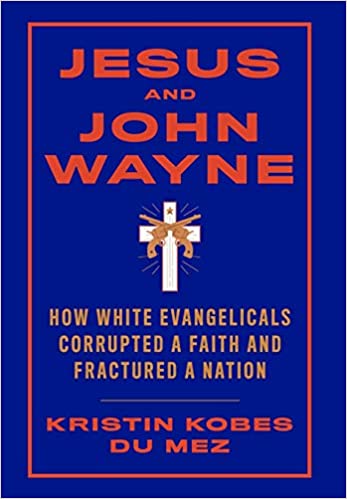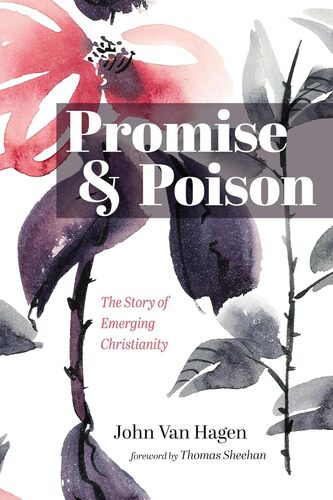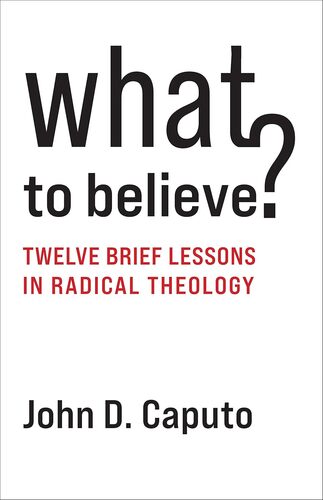
This bookstudy will begin January 7, 2024 only on Zoom.
Jesus and John Wayne is a sweeping account of the last seventy-five years of white evangelicalism, showing how American evangelicals have worked for decades to replace the Jesus of the Gospels with an idol of rugged masculinity and Christian nationalism, or in the words of one modern chaplain, with “a spiritual badass.” As Du Mez explains, the key to understanding this transformation is to recognize the role of culture in modern American evangelicalism. Many of today’s evangelicals may not be theologically astute, but they know their VeggieTales, they’ve read John Eldredge’s Wild at Heart, and they learned about purity before they learned about sex—and they have a silver ring to prove it. Evangelical books, films, music, clothing, and merchandise shape the beliefs of millions. And evangelical popular culture is teeming with muscular heroes—mythical warriors and rugged soldiers, men like Oliver North, Ronald Reagan, Mel Gibson, and the Duck Dynasty clan, who assert white masculine power in defense of “Christian America.” Chief among these evangelical legends is John Wayne, an icon of a lost time when men were uncowed by political correctness, unafraid to tell it like it was, and did what needed to be done. (from goodreads.com)

This bookstudy will begin March 17, 2024 only on Zoom.
In Promise and Poison, psychologist and former Catholic priest John Van Hagen argues that the long-standing Jewish hope for the history-changing intervention of YHWH and the cursed, shameful crucifixion of Jesus were two elements from which emerged new moral communities whose members were soon called Christians. While the history of Emerging Christianity appears fraught with battles about what to believe (orthodoxy), what often goes unnoticed is the intense struggle to live a virtuous life (orthopraxis). In their desperate efforts at self-definition, communities demonized outsiders and held insiders to unrealistic standards of conduct. That insistence on living a highly moral life was also fueled by the promise of a new afterlife on a transformed earth. The presence of retaliatory rage lay close to the surface. While the verbal violence toward those others only became actuated when Christians gained political power, the pressure for remaining a highly moral community spawned hypocrisy and harsh competition among insiders. This religion's moral struggle in ancient times is also a challenge for us today. Can we establish boundaries which are so necessary for an identity as a moral community without demonizing those outside or ostracizing those inside who are perceived to be different? The United States still struggles with this question.

This bookstudy will begin August 25, 2024 only on Zoom.
If you no longer “believe in God,” the Supreme Being of classical theology, or you never did in the first place, is there anything you still ought to believe, anything you should cherish unconditionally, no matter what? In this lively and accessible book, addressed to believers, “recovering” believers, disbelievers, nonbelievers, and “nones” alike—to anyone in search of what they really do believe—the acclaimed philosopher and theologian John D. Caputo seeks out what there is to believe, with or without religion. Writing in a lucid and witty style, Caputo offers a bold account of a “radical theology” that is anything but what the word theology suggests to most people. His point of departure is autobiographical, describing growing up in the world of pre-Vatican II Catholicism, serving as an altar boy, and spending four years in a Catholic religious order after high school. Caputo places Augustine’s Confessions, Tillich’s Dynamics of Faith, and Jacques Derrida and postmodern theory in conversation in the service of what he calls the “mystical sense of life.” He argues that radical theology is not simply an academic exercise but describes a concrete practice immediately relevant to the daily lives of believers and nonbelievers alike. What to Believe? is an engaging introduction to radical theology for all readers curious about what religion can mean today.
